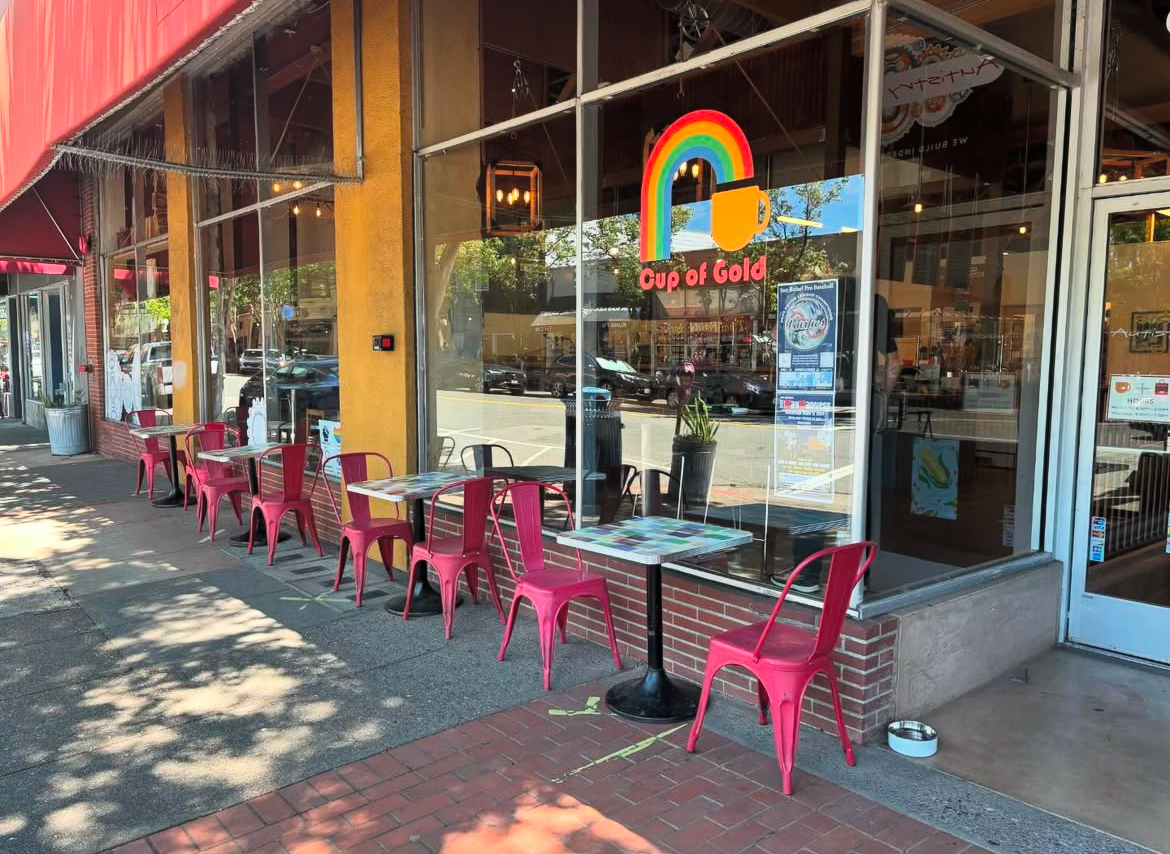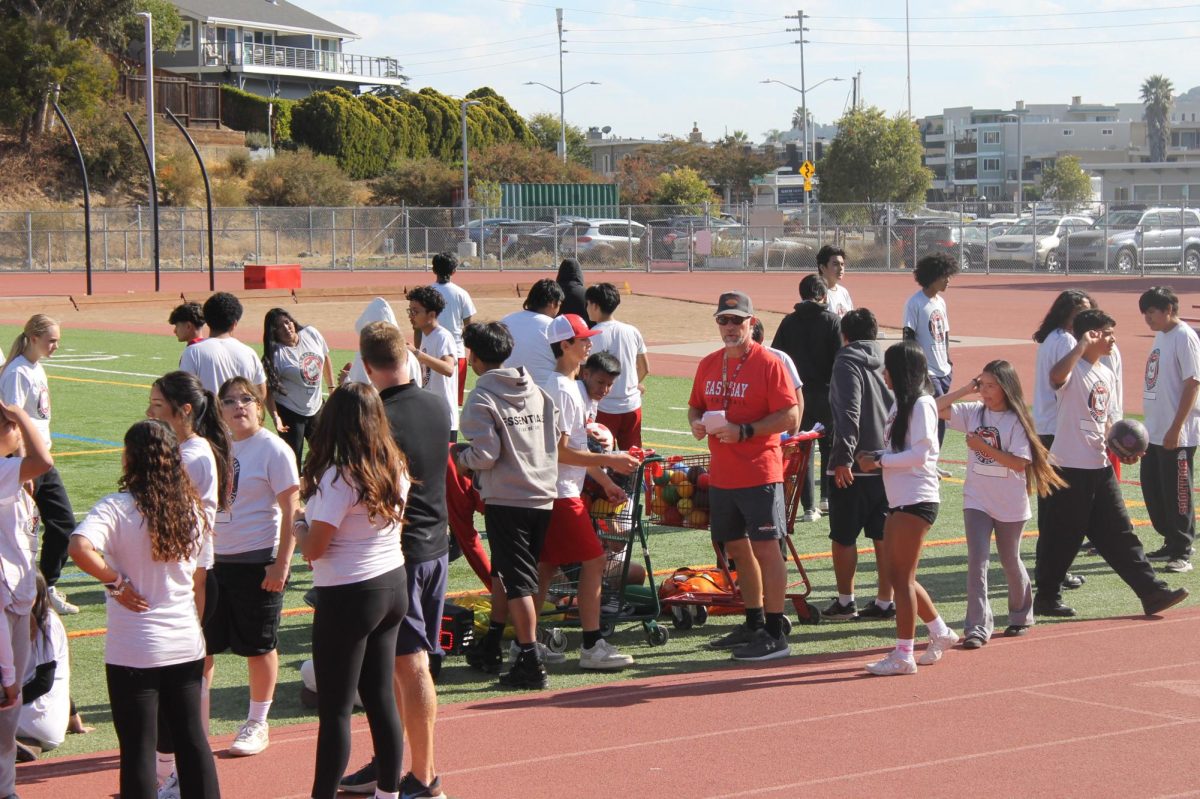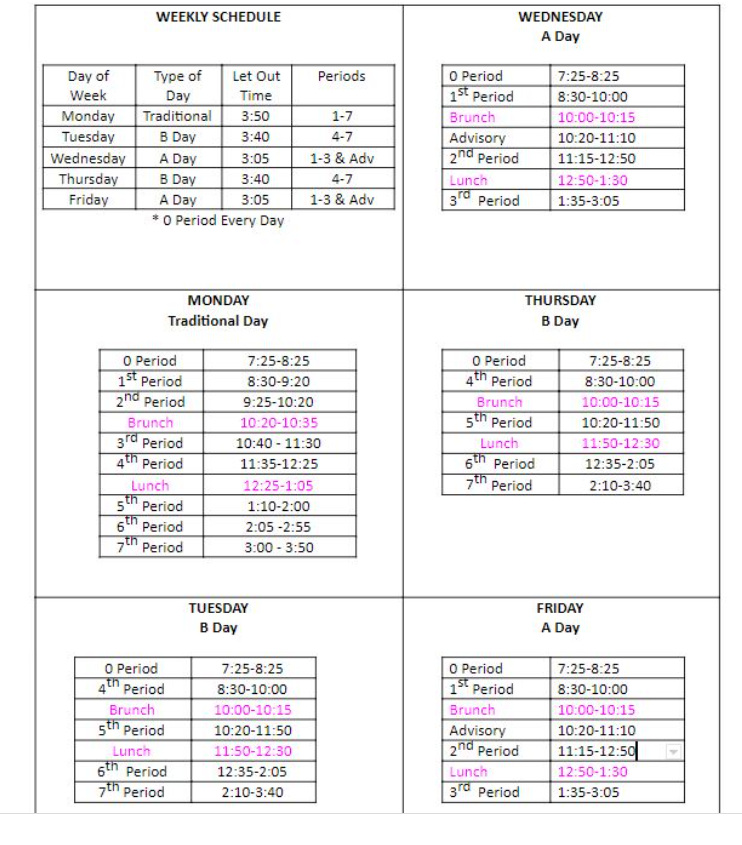Later Start Times: More Rest or More Pressed?
October 8, 2021
If there’s one thing SR should be known for, it’s not being able to decide on a schedule. This year, the decision was made that schools legally could no longer start before 8:30 AM. This had a split reaction among people within our community, as people wonder whether students will actually use the later start times to get more rest, or just to stay up later.
However, this time the change not only affects our school, but rather every elementary, middle, and high school in the state of California. This statewide mandate was enacted at the beginning of this school year, and is a reaction to a lack of sleep in teenagers.
Teens not getting enough sleep is not something that is only recently being talked about. A study done by the American Academy of Pediatrics in September 2014 revealed that, “the evidence strongly implicates earlier school start times (ie, before 8:30 am) as a key modifiable contributor to insufficient sleep, as well as circadian rhythm disruption, in this population.”
Circadian rhythm disruption is any disruption in the sleep cycle, including waking up in the middle of the night and difficulty falling asleep. This can cause depression, stress, and a lack of focus in students.
San Rafael Superintendent Jim Hogeboom offered his own perspective, stating, “I think kids have a natural clock that was not being supported under the old schedule. Starting school later should help students stay on that schedule that best supports them.” Despite this, Mr. Hogeboom declared that he does not believe that a state mandate was necessary, and believes that the decision should be left up to individual counties and districts.
However, not everyone shares the same perspective about starting and ending school later. When asked about her thoughts on the changes, science teacher and mother of two children Ms. Pikkarainen offered her own opinion. She makes the point that a later end time causes students in sports to miss much of class due to early releases, and have to make up work at other times.
She also stated that as a parent, it makes childcare difficult, because her two kids get out of school before the SR day ends. When asked about whether the later start would positively affect sleep schedules, Pikkarainen said, “I am not sure that a later start time in itself will lead to any positive change.”
Math teacher Mr. Snaith seemed to concur with Ms. Pikkarainen, saying, “Starting later is basically giving students permission to stay up later.” Social studies teacher Ms. Ayoob offered her own perspective, saying, “The benefits don’t outweigh the costs.”
Athletic Director Jose de la Rosa seems to hold a similar perspective, saying that although he is in favor of a later start time, the later finish can create a conflict between sports and academics. “It’s super important that they’re student athletes, not just athletes,” Mr. De la Rosa responded.
Mr. De la Rosa stated that it is important to think ahead about solutions to the newfound problems created by ending school later. Some solutions he proposed are making games shorter, starting games later, and rescheduling academic classes for before 7th period. He also mentioned that as fall progresses into winter, the sports department will not only be battling academics, but also sunlight as the sun begins to set earlier.
A senior advisory class was polled, revealing that twelve of twenty one students were in favor of starting school later. However, none of the students believed a later end time to be beneficial in any way. It is important to note that one of these cannot exist without the other, due to a required minimum amount of minutes in the school year.
When asked about his thoughts on starting school later, senior Max Hoffman said, “It’s chillin.” However, he responded negatively to the traditional day. When asked about how the traditional day has affected his performance in school, SR senior Kevin Garcia responded, “It’s made it a lot harder to keep up with work.” SR senior Nicole Wasserman said, “It’s stressful with all the homework due Monday.”
This is not the first time recently that the San Rafael schedule has been altered. During the 2018-2019 school year, a survey was sent out in order to determine whether to change the schedule to be more like Terra Linda High School’s. TL’s schedule was and still is a traditional Monday and a block schedule for Tuesday-Friday. A traditional day is a day where all classes are held for 50 minute periods.
Despite much controversy, the decision was made to enact the traditional day at SR on Mondays at the beginning of the 2019-2020 school year. Ms. Pikkarianen explained that this was done in order to accommodate parents’ schedules who may have multiple kids in San Rafael City Schools.
For the 2020-2021 school year, which was mostly online, the schedule was changed once more in favor of a 4X4 model. This allowed students to take half of their classes in the first semester, and the other half in the second, abandoning the block schedule for the time school would be held on Zoom. After a return to normalcy, students wondered what the schedule would look like this year.
When it was announced that the traditional day would make its return, it appeared that most students and teachers would have preferred to go back to the alternating A and B days of 2018-2019.
When asked about her thoughts on the traditional day, Mrs. Ayoob responded, “Burn it down. I think the idea of it was to be more in line with Terra Linda and I don’t agree with that policy.” Mr. Snaith seemed to agree with this sentiment, saying, about the traditional day, “It feels like it was pushed on us.”
Mr. Hogeboom did not offer his personal opinion on this matter, but stated that he has observed a mixed reaction to the traditional days. He also gave his observations from when he was the principal of Novato High. He said that even though the schedule was very similar to that of SR’s today, the students and teachers of Novato largely endorsed it.
Putting opinions about the later start times and traditional days aside, all parties interviewed agreed that if changes are to be made to the schedule, those who are affected should have more of a say. This is true whether that be students, teachers, or individual school districts. If students involve themselves in the politics of the school, this could possibly become a reality.
As Mrs. Ayoob, also the teacher of ASB said, “Students should be able to say, ‘This is what works for me, this is what doesn’t.’’’






































